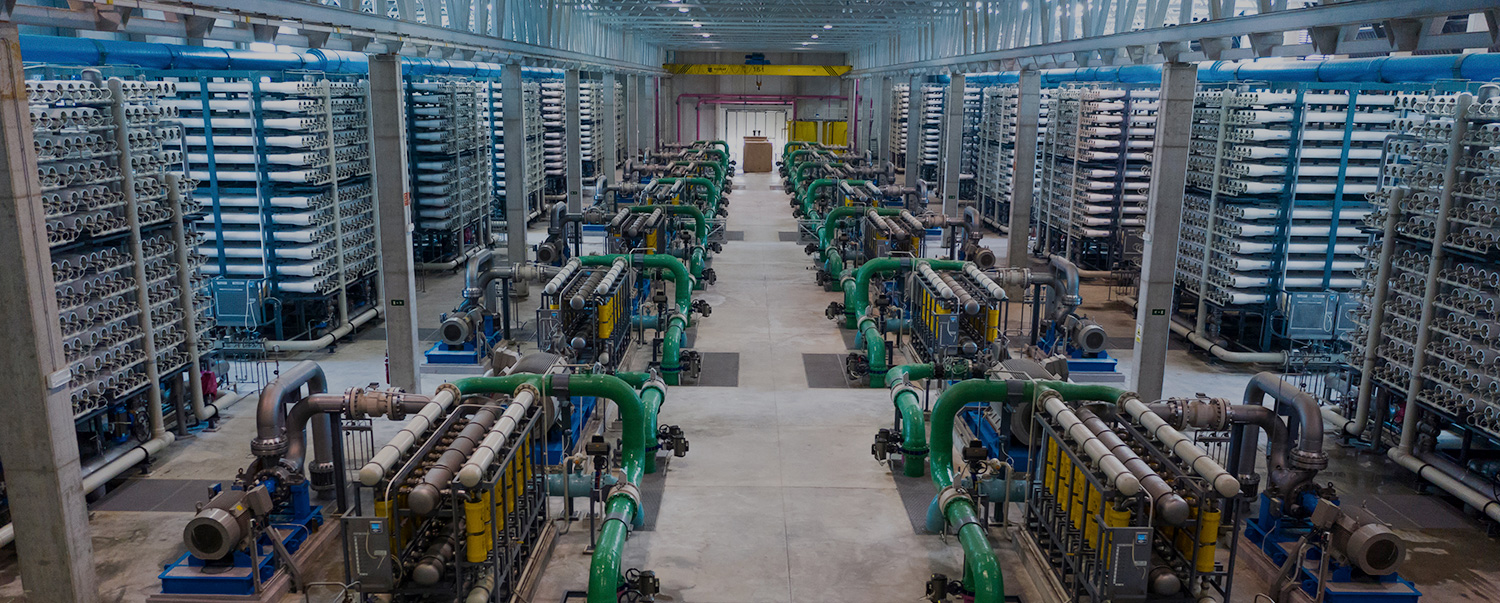Introduction to High-Efficiency Pumps
The desalination industry, critical in addressing global water scarcity, continuously seeks innovations that enhance operational efficiency and sustainability. High-efficiency pumps are pivotal in these systems, offering advanced solutions that drastically improve water circulation processes. This detailed exploration delves into these pumps’ design, features, and multifaceted applications, elucidating their pivotal role in the desalination sector and beyond.
Efficiency and reliability are paramount in industrial applications. Pumps for the desalination industry are specially designed to meet these rigorous standards. These pumps are engineered to optimize water circulation, significantly reducing energy consumption while ensuring reliable, continuous operation. The integration of cutting-edge technologies in pump design supports the operational demands of desalination and extends to various other critical applications, including urban water management and industrial processes.
Core Features of High-Efficiency Pumps
- Precision Casting Impeller: The heart of a high-efficiency pump is its impeller, which is designed with precision casting techniques. This method ensures that the impeller has exact geometric dimensions and smoother surfaces, which minimize turbulence and hydraulic losses during pump operation. The result is a highly efficient fluid flow, which translates into lower energy costs and enhanced performance.
- Universal Structure Design: These pumps are characterized by their universal design, which allows for a high degree of standardization across various models. This feature is particularly beneficial for large-scale operations such as desalination plants, where it simplifies maintenance and reduces the need for a large inventory of spare parts. Facilities can streamline their operations and minimize downtime by standardizing components, which is crucial for maintaining a continuous water supply.
- High-Precision Bearings: The longevity and reliability of a pump are significantly influenced by its bearings. High-efficiency pumps incorporate high-precision bearings that withstand heavy loads and operate smoothly over extended periods. These bearings are crucial for the pump’s durability, especially in applications involving high flow rates and pressures, such as desalination plants.
- Integrated Design of Engine and Pump: An integrated engine and pump design offers substantial benefits in terms of reduced vibration and noise levels. This feature is essential in environments where noise control is necessary to meet regulatory standards and ensure operational comfort. Moreover, the integrated design contributes to the pump’s overall compactness and space efficiency, an essential factor in facilities where space is at a premium.
Versatile Applications of High-Efficiency Pumps
The design and features of high-efficiency pumps make them suitable for a wide range of applications:
- Desalination: In desalination plants, these pumps are used to circulate seawater through membranes under high pressure, a process essential for separating salt from water. The efficiency of these pumps directly influences the energy consumption and operational costs of desalination.
- Urban Water Supply and Drainage: These pumps facilitate the management of water supply and drainage systems in urban areas, ensuring that water is available across sprawling cityscapes efficiently and reliably.
- High-rise Buildings: The ability to pump water at various flow rates and pressures makes these pumps ideal for pressurized water supply in high-rise buildings, ensuring that water reaches all floors efficiently.
- Marine Applications: The robust construction of these pumps allows them to perform reliably in marine environments, where they are used for ballast exchange, cooling large engines, and managing wastewater.
- Agricultural and Landscape Irrigation: High-efficiency pumps are also used in agricultural settings for irrigation, helping distribute water evenly across large fields. Similarly, they are used in landscape irrigation to maintain lush gardens and parks.
- Firefighting Systems: In emergency firefighting systems, these pumps’ reliability and prompt response are crucial. They ensure that high-pressure water is available immediately to combat fires in urban and industrial settings.
- HVAC Systems: These pumps are integral to heating, ventilation, and air conditioning systems, facilitating the circulation of heating and cooling mediums throughout building complexes.
- Industrial Processes: Various industrial processes rely on these pumps to efficiently transport liquids and solutions essential for manufacturing and production activities.
Customization and Service Support
Recognizing that different applications may have unique requirements, manufacturers of high-efficiency pumps offer extensive customization options. These services accommodate specific operational needs, such as varying pressure demands or corrosive environments, ensuring that each pump delivers optimal performance tailored to its context. Furthermore, comprehensive service support is provided to assist with installation, maintenance, and troubleshooting, ensuring these pumps operate efficiently throughout their lifecycle.
Conclusion
High-efficiency pumps represent a significant advancement in the technology available for water circulation in the desalination industry and beyond. Their precise design, robust construction, and versatile applications make them invaluable in industrial and urban settings and underscore their critical role in supporting sustainable water management practices globally. As the demand for efficient, reliable water management solutions continues to grow, these pumps will undoubtedly play a central role in meeting these needs, driving forward innovations in water circulation technology.
This article has explored the numerous aspects of high-efficiency pumps, from their design and operational features to their broad application spectrum and the customization services available. Through continuous advancements and dedication to quality, these pumps are set to revolutionize water management strategies, making them essential components in pursuing a more sustainable and efficient future.
